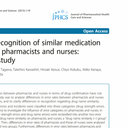Delayed treatment with cannabidiol has a cerebroprotective action via a cannabinoid receptor-independent myeloperoxidase-inhibiting mechanism.
Nyckelord
Abstrakt
We examined the neuroprotective mechanism of cannabidiol, non-psychoactive component of marijuana, on the infarction in a 4 h mouse middle cerebral artery (MCA) occlusion model in comparison with Delta(9)-tetrahydrocannabinol (Delta(9)-THC). Release of glutamate in the cortex was measured at 2 h after MCA occlusion. Myeloperoxidase (MPO) and cerebral blood flow were measured at 1 h after reperfusion. In addition, infarct size and MPO were determined at 24 and 72 h after MCA occlusion. The neuroprotective effect of cannabidiol was not inhibited by either SR141716 or AM630. Both pre- and post-ischemic treatment with cannabidiol resulted in potent and long-lasting neuroprotection, whereas only pre-ischemic treatment with Delta(9)-THC reduced the infarction. Unlike Delta(9)-THC, cannabidiol did not affect the excess release of glutamate in the cortex after occlusion. Cannabidiol suppressed the decrease in cerebral blood flow by the failure of cerebral microcirculation after reperfusion and inhibited MPO activity in neutrophils. Furthermore, the number of MPO-immunopositive cells was reduced in the ipsilateral hemisphere in cannabidiol-treated group. Cannabidiol provides potent and long-lasting neuroprotection through an anti-inflammatory CB(1) receptor-independent mechanism, suggesting that cannabidiol will have a palliative action and open new therapeutic possibilities for treating cerebrovascular disorders.


